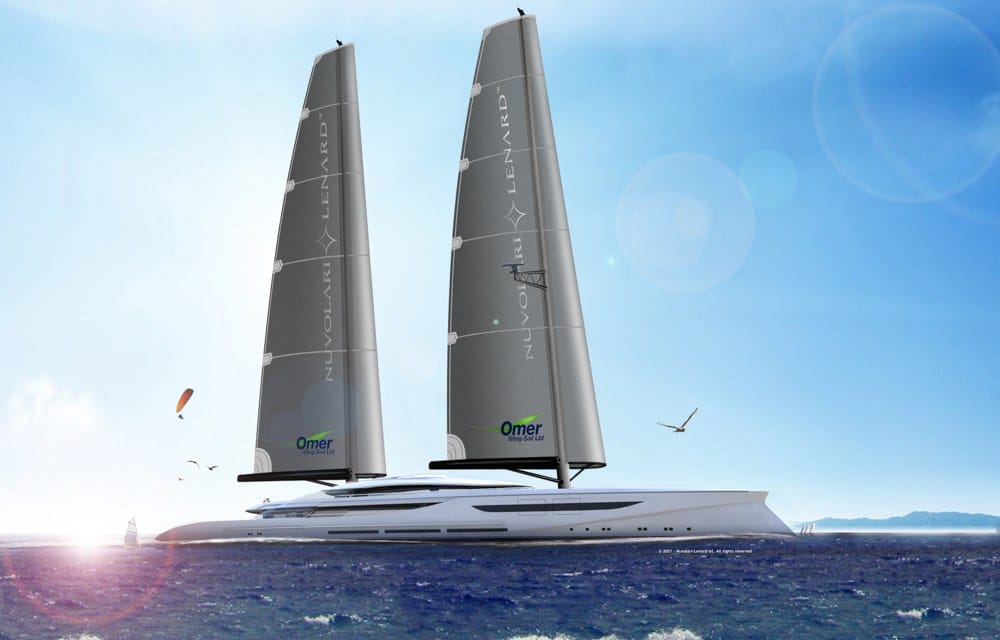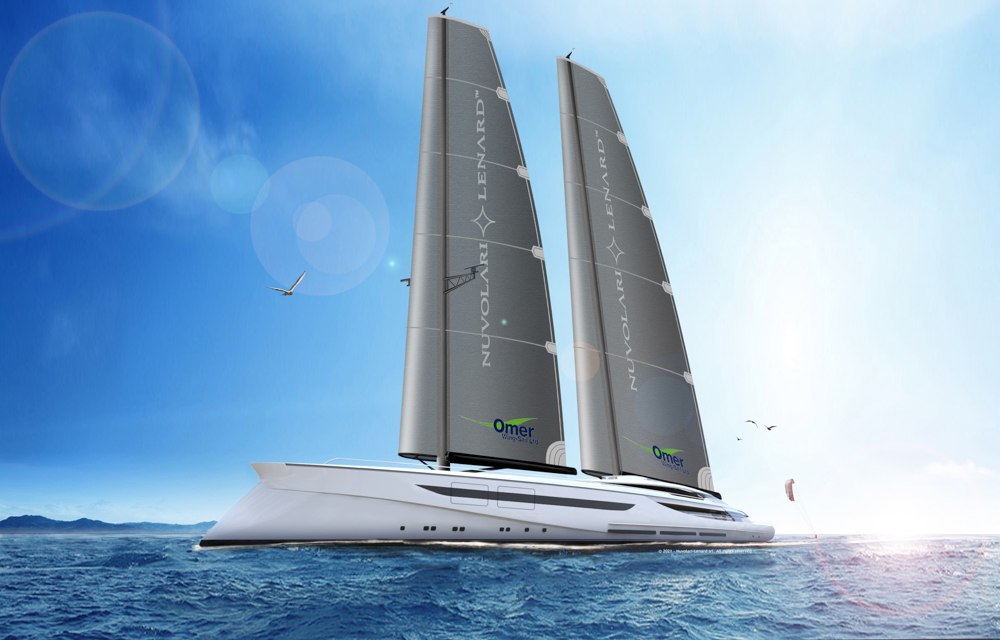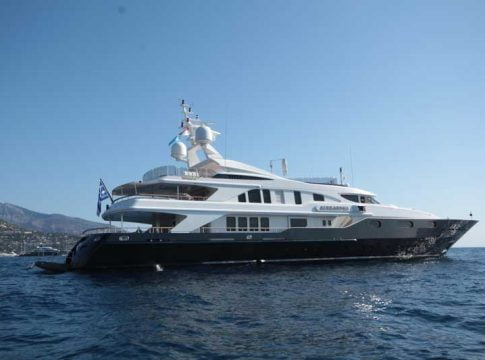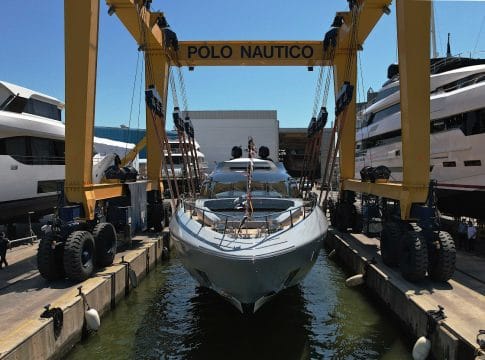A 100m sailing superyacht can – and must – be environmentally friendly and have as little impact on the ecosystem as possible.
This can be achieved by reversing course, adopting virtuous behaviour and simultaneously combining the knowledge, technologies and materials we already know about. Carlo Nuvolari and Dan Lenard, founders of the Nuvolari Lenard Venetian design studio, are convinced of this. They have always been concerned with protecting the environment and have promoted responsible yacht design (their latest projects include Thunder, the 14-seater hybrid Venetian water taxi launched in 2020).
BACK TO BASICS
Building on decades of experience in yacht design in all shapes and sizes, with hugely successful projects for iconic shipyards such as Oceanco, Palmer Johnson, Perini Navi and CRN Ferretti, Nuvolari Lenard decided to break the mould with a radical concept that integrates all the parameters of pure sailing with the needs of today’s superyacht owner.
“Vento” will not be the umpteenth “sail assisted megayacht”, but an authentic and extremely elegant 100-metre sailing vessel that will use wind as its natural propulsive force.
“Beingenvironmentally conscious has to become a way of being, as well as a way of thinking,” explains engineer Carlo Nuvolari. “There’s nothing stopping us from thinking about a truly green large yacht.It’s not difficult to achieve major results, you just have to stop being traditionalist and take a risk, going back to the basics: building a sailing yacht that really uses sails and is really efficient.”
SUSTAINABILITY AND PERFORMANCE
In keeping with Nuvolari Lenard’s own design philosophy of sporty, muscular design, “Vento” has a powerful, aggressive profile that confirms its unique character. However, since form is never an end in itselfbut always the expression of a very precise function, the yacht is designed to be as efficient as possible: the reverse bow, for example, as well as giving the yacht a strong personality, allows the waterline length to be extended to the maximum, thus increasing stability and performance when sailing. The result is a hull with reduced drag and therefore lower power requirements for a given speed, which translates into huge benefits when using sails or the motor. The sloping stern also fulfils a function, because with its small volume, it will have less impact on the overall displacement, which is crucial to an efficient and sustainable hull. A sailboat must be light, with the weight concentrated at the bottom, and “Vento” will thus be built in aluminium with superstructures and masts in advanced composite. A light and long hull will have less residual resistance, and will therefore form smaller waves, to the benefit of the coastline, which is increasingly exposed to the motion generated by large, fast boats.
WING-SAIL
An efficient hull must be matched by an appropriate sail plan that maximises its benefits and performance. So Nuvolari Lenard turned to Omer Wing-Sail and its creator, Ilan Gonen, an Israeli former fighter pilot, an aerodynamics expert and keen sailor. The result is a uniqueWing Sail, which – as demonstrated by recent America’s Cup hulls – offers significantly greater efficiency than traditional rigs. A wing-sail of this type requires less sail area for the same performance and this triggers a positive spiral: by reducing the amount of sail there will be less heeling force and therefore less keel weight will be required to right the boat. Simply stated: less displacement, which is the ultimate goal. The retractable keel will make it possible to go from a draught of 5.5m to 9m. The carbon masts will measure 64 m and will support a total sail area of 2100 square metres.

WHEN GREEN RHYMES WITH BIG
Like every Nuvolari Lenard project, “Vento” encloses, within sporty and powerful lines, spacious and very well distributed interiors, thanks to a careful study of volumes and flows. The concept includes six double cabins: four VIP, one super VIP and the large master suite forward of the main deck, with a private terrace. The outdoor spaces are also huge and varied, including, of course, fly bridge, spa, beach club and all the other extras you’d expect to find on a megayacht of this size.
CHANGE OF PACE
As far as engine propulsion is concerned, Nuvolari Lenard is in contact with a leading company in the marketto equip “Vento” with a hybrid diesel/electric system with variable-speed generators and variable-pitch propellers that allows many operating options, to achieve maximum efficiency and minimum specific consumption.
“Vento” is much more than an avant-garde, environmentally conscious yacht: it is a revolutionary concept that forces us to look reality in the face, see it through different eyes and deal with it with a different mindset. An electric motor and batteries are not enough to make a boat green, we need to change our mentality, to acquire a global vision that is able to balance the benefits and costs of certain choices and project them into the future. In short, yacht design needs to change pace, to concern itself as much with the sea on our doorstep as with seas far away and, from the hull to the sail plan and from the technology to the decoration of the luxurious interiors, to ask questions and be ready to give concrete answers.
“Vento” speaks to a market that is sensitive to environmental issues and concerned about the future of the marine ecosystem, and is ready to do its part: sailing as much as possible, not polluting, moving slowly to avoid generating wave motion that is dangerous for the coasts, saving energy (by not setting the air conditioning to “freezing” temperatures below deck) and, above all, regaining control of sailing time, respecting the whims of the wind which, in the Mediterranean, means moving around in the early hours of the day and during afternoon thermal breezes…
A new way of thinking about sailing mega-yachts, with a real focus on ecology, is possible: “Vento” is testimony to this.






